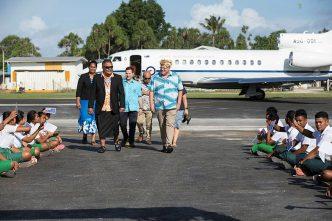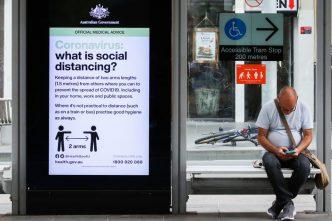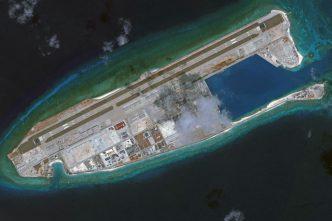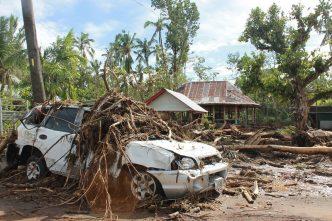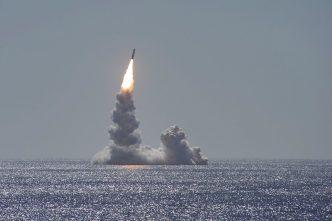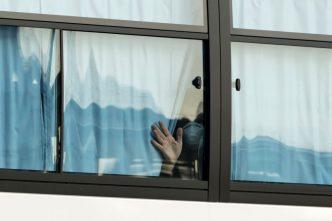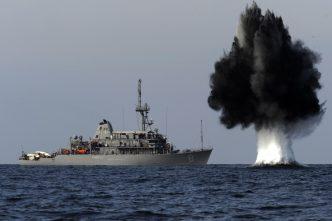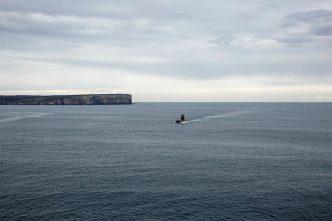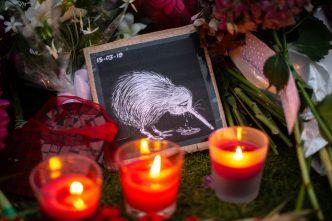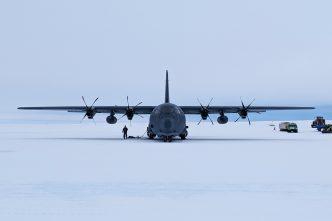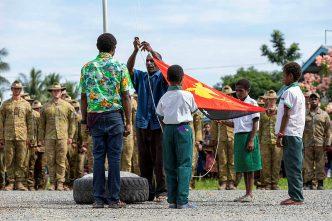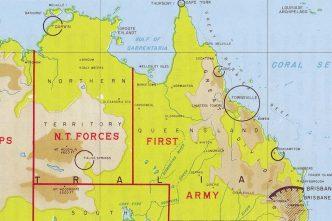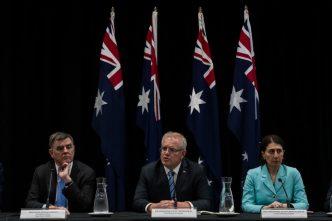We will see many things that frighten us as we walk along the various threads of the coronavirus pandemic. But whether it’s about panic shopping, closed borders or social distancing, it will be the leadership …
Merge a couple of fairy tales for some judgement lines on Australia’s Pacific step-up. Canberra likes to think of itself as the handsome prince. The Pacific islands, though, can perceive a sleeping beauty or a …
In this episode, we speak with three experts to help understand the global health crisis caused by the novel coronavirus. You’ll hear from Raina MacIntyre, who’s a professor of global biosecurity at the University of …
In his recent two–part Strategist series, ASPI’s Marcus Hellyer made the case for Australia developing a long-range strike capability. I disagree, but my counterargument is not absolute: Australia ought to have the ability to sink …
Over the coming decades, climate change will have serious and pervasive impacts on human security across the Indo-Pacific region. From supporting regional disaster-assistance missions to responding to sudden climate-change-related mass migration, Australia’s north will need …
Every year, the International Institute for Strategic Studies publishes a thorough assessment of the capabilities and defence economics of militaries around the globe. The 2020 edition of The military balance covers 171 countries and provides …
My ASPI colleague Marcus Hellyer’s two recent posts open up a range of questions about the future role of long-range strike capabilities in Australian strategy. One of the more important questions involves what we want …
The beat Police granted powers to enforce quarantine Governor-General David Hurley has declared an emergency granting Australian police powers to quarantine people with Covid-19 under human biosecurity control orders. People who fail to comply or …
Captain Chris O’Flaherty of the Royal Navy has produced a timely study of the theory and practice of naval mine warfare in a period when strategic and technological change are challenging traditional concepts of maritime …
The new national cabinet the prime minister has formed with state premiers and territory chief ministers will need to grow quickly in reach, speed of action and composition to get ahead of the rapidly unfolding …
Australia’s strategic circumstances over the next few decades will mean we cannot afford to be without a submarine capability. But that’s an area in which we are terribly vulnerable. Serious concerns have been raised over …
Toilet paper shortages, profiteering from hand sanitiser and empty shelves in supermarkets. Thanks to Covid-19, governments in most industrialised nations are preparing for shortages of life’s necessities. If they fail, riots over food may be inevitable. Some wonder …
The cancellation of the memorial service marking the first anniversary of the Christchurch terrorist attacks because of the risk posed by the novel coronavirus, Covid-19, demonstrates how immediate threats can overtake the most painful events. …
This article is part of a series on women, peace and security that The Strategist is publishing in recognition of International Women’s Day. In an era in which disruption rules, suggesting we should say no to some …
Across many countries, an important strategy to counter Covid-19 is to ‘flatten the curve’. That strategy involves a deliberate attempt to slow transmission of the virus in order to allow the demand for medical services …
Sea state Naval Group has engaged Australia-based PMB Defence and Greece-based Systems Sunlight to develop the main storage batteries for the Royal Australian Navy’s future submarines. The batteries will power the fleet of 12 boats …
One of the questions frequently asked about Australia’s closest neighbour, Papua New Guinea, is whether a military, or other, coup is possible. Over the 40-plus years of my association with PNG, my view has been …
In October 1942, Edward Ward, the minister for labour and national services, accused the Australian government of having planned to abandon the country’s north in the event of a Japanese invasion. While the ‘Brisbane Line’ …
Australian governments at all levels have learned a lot between the onset of the bushfire season and the first stages of the novel coronavirus pandemic. There’s a clear understanding that national crises require coherent national …
The new coronavirus, Covid-19, has spread to more than 130 countries—bringing social disruption, economic damage, sickness and death—largely because authorities in China, where it emerged, initially suppressed information about it. And yet China is now …

